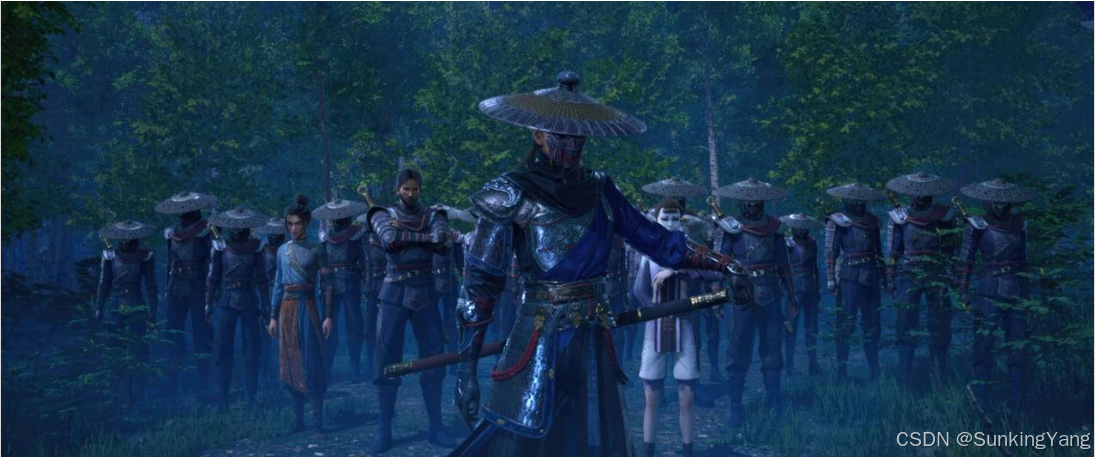目录
- 引言
- 相关阅读
- Popup基本属性
- 工程结构
- 示例实现
- Main.qml - 主界面
- SimplePopup.qml - 简单弹窗
- ModalPopup.qml - 模态弹窗
- CustomPopup.qml - 自定义样式弹窗
- AnimatedPopup.qml - 带动画的弹窗
- 总结
- 工程下载
引言
在现代图形用户界面(GUI)开发中,弹窗(Popup)是一种常见且重要的交互元素。它们可用于显示临时信息、确认对话框、上下文菜单等多种场景。Qt Quick Controls 2提供了功能丰富的Popup组件,使开发者能够轻松创建各种弹窗效果。本文将通过实例介绍Qt QML中Popup组件的基本用法和高级特性,帮助您在应用中实现丰富的弹窗交互。
相关阅读
- Qt Quick Controls - Popup
Popup基本属性
根据Qt官方文档,Popup组件提供了多种属性用于控制其行为和外观。以下是主要属性的概览:
| 属性 | 类型 | 描述 |
|---|---|---|
visible | bool | 控制弹窗是否可见 |
modal | bool | 设置弹窗是否为模态(阻止与背景元素交互) |
dim | bool | 显示弹窗时是否使背景变暗 |
focus | bool | 是否自动获取焦点 |
closePolicy | flags | 控制弹窗何时自动关闭 |
width/height | real | 弹窗的宽度和高度 |
x/y | real | 弹窗的位置坐标 |
padding | real | 弹窗内容周围的内边距 |
margins | real | 弹窗周围的外边距 |
parent | Item | 弹窗的父项 |
background | Item | 弹窗的背景 |
contentItem | Item | 弹窗的内容项 |
enter/exit | Transition | 弹窗显示/隐藏时的动画过渡效果 |
其中closePolicy支持以下标志组合:
Popup.NoAutoClose- 不自动关闭Popup.CloseOnEscape- 按ESC键关闭Popup.CloseOnPressOutside- 点击弹窗外部区域关闭Popup.CloseOnPressOutsideParent- 点击父项外部区域关闭
工程结构
以下是本示例工程的结构图:
本工程使用TabBar和StackLayout组织多个Popup示例,展示了不同类型的弹窗实现。接下来将逐一介绍各个示例及其实现。
示例实现
Main.qml - 主界面
import QtQuick
import QtQuick.Controls
import QtQuick.Layouts
Window {
width: 800
height: 600
visible: true
title: qsTr("QML Popup Examples")
TabBar {
id: tabBar
width: parent.width
TabButton { text: "Simple Popup"; height: 30 }
TabButton { text: "Modal Popup"; height: 30 }
TabButton { text: "Custom Popup"; height: 30 }
TabButton { text: "Animated Popup"; height: 30 }
}
StackLayout {
width: parent.width
height: parent.height - tabBar.height
anchors.top: tabBar.bottom
currentIndex: tabBar.currentIndex
SimplePopup {}
ModalPopup {}
CustomPopup {}
AnimatedPopup {}
}
}
代码解释:
- 主窗口中使用
TabBar组件创建四个标签页,分别对应四种不同类型的弹窗示例 StackLayout组件根据当前选中的标签页索引显示相应的示例- 通过
anchors.top属性将StackLayout的顶部与标签栏底部对齐,确保布局正确
SimplePopup.qml - 简单弹窗
import QtQuick
import QtQuick.Controls
Item {
width: parent.width
height: parent.height
Button {
x: 50
y: 50
id: btn
text: "Show Simple Popup"
onClicked: popup.open()
}
Popup {
id: popup
x: 50
y: 90
width: 200
height: 100
Label {
text: "This is a simple Popup"
anchors.centerIn: parent
}
}
}
代码解释:
- 这是最基本的弹窗示例,展示了Popup组件的基本用法
- 通过按钮的
onClicked事件调用popup.open()方法显示弹窗 - 弹窗内仅包含一个居中的文本标签
- 此弹窗没有启用模态特性,用户可以在弹窗显示时与背景元素交互
运行效果:

ModalPopup.qml - 模态弹窗
import QtQuick
import QtQuick.Controls
Item {
width: parent.width
height: parent.height
Button {
x: 50
y: 50
text: "Show Modal Popup"
onClicked: modalPopup.open()
}
Button {
x: 300
y: 300
text: "Test Click"
}
Popup {
id: modalPopup
x: 50
y: 90
width: 300
height: 200
modal: true
focus: true
closePolicy: Popup.CloseOnEscape
Column {
anchors.centerIn: parent
spacing: 10
Label {
text: "This is a Modal Popup"
font.pixelSize: 16
}
Button {
text: "Close"
onClicked: modalPopup.close()
}
}
}
}
代码解释:
- 此示例创建了一个模态弹窗,通过设置
modal: true启用模态特性 - 当弹窗显示时,用户无法与背景元素交互(测试按钮无法点击),必须先关闭弹窗
- 关闭策略:按ESC键可关闭弹窗,或者点击Close按钮
- 通过设置
focus: true使弹窗在显示时自动获取焦点,便于捕获ESC键等键盘事件
运行效果:

CustomPopup.qml - 自定义样式弹窗
import QtQuick
import QtQuick.Controls
Item {
width: parent.width
height: parent.height
Button {
x: 50
y: 50
text: "Show Custom Popup"
onClicked: customPopup.open()
}
Popup {
id: customPopup
x: 50
y: 90
width: 300
height: 200
modal: true
focus: true
background: Rectangle {
color: "#f0f0f0"
border.color: "#2196F3"
border.width: 2
radius: 10
}
Column {
anchors.centerIn: parent
spacing: 15
Label {
text: "Custom Styled Popup"
font.pixelSize: 18
font.bold: true
color: "#2196F3"
}
Rectangle {
width: 200
height: 1
color: "#2196F3"
}
Text {
text: "This popup has a custom style with:\n• Rounded corners\n• Custom colors\n• Border"
color: "#333"
font.pixelSize: 14
}
Button {
text: "Close"
onClicked: customPopup.close()
background: Rectangle {
color: "#2196F3"
radius: 5
}
contentItem: Text {
text: parent.text
color: "white"
horizontalAlignment: Text.AlignHCenter
verticalAlignment: Text.AlignVCenter
}
}
}
}
}
代码解释:
- 此示例展示了如何自定义弹窗的外观样式
- 通过设置
background属性为一个带有圆角、边框和自定义颜色的Rectangle来自定义弹窗背景 - 弹窗内容使用Column布局组织,包含标题、分隔线、说明文本和自定义样式的关闭按钮
- 按钮也使用了自定义样式,包括背景色、圆角和文本颜色
- 这个示例演示了如何通过组合基本元素创建视觉上独特的弹窗
运行效果:

AnimatedPopup.qml - 带动画的弹窗
import QtQuick
import QtQuick.Controls
Item {
width: parent.width
height: parent.height
Button {
x: 50
y: 50
text: "Show Animated Popup"
onClicked: animatedPopup.open()
}
Popup {
id: animatedPopup
x: 50
y: 90
width: 300
height: 200
modal: true
focus: true
enter: Transition {
NumberAnimation {
property: "opacity"
from: 0.0
to: 1.0
duration: 300
}
NumberAnimation {
property: "scale"
from: 0.5
to: 1.0
duration: 300
}
}
exit: Transition {
NumberAnimation {
property: "opacity"
from: 1.0
to: 0.0
duration: 300
}
NumberAnimation {
property: "scale"
from: 1.0
to: 0.5
duration: 300
}
}
background: Rectangle {
color: "#f0f0f0"
border.color: "#4CAF50"
border.width: 2
radius: 10
}
Column {
anchors.centerIn: parent
spacing: 15
Label {
text: "Animated Popup"
font.pixelSize: 18
font.bold: true
color: "#4CAF50"
}
Text {
text: "This popup has:\n• Fade in/out animation\n• Scale animation\n• Smooth transitions"
color: "#333"
font.pixelSize: 14
}
Button {
text: "Close"
onClicked: animatedPopup.close()
background: Rectangle {
color: "#4CAF50"
radius: 5
}
contentItem: Text {
text: parent.text
color: "white"
horizontalAlignment: Text.AlignHCenter
verticalAlignment: Text.AlignVCenter
}
}
}
}
}
代码解释:
- 此示例展示了如何为弹窗添加显示和隐藏动画
- 通过设置
enter和exit属性定义弹窗显示和隐藏时的过渡动画 - 显示动画包括透明度从0到1的渐变和从0.5到1的缩放效果
- 隐藏动画则包括透明度从1到0的渐变和从1到0.5的缩放效果
- 动画持续时间为300毫秒,创造平滑的过渡效果
运行效果:

总结
本文通过实例详细介绍了Qt QML中Popup组件的多种用法。从简单的基础弹窗,到模态弹窗、自定义样式弹窗和带动画效果的弹窗,涵盖了Popup组件的主要特性和使用场景。
工程下载
本示例项目完整源码可通过以下链接获取: GitCode QML Popup示例




















